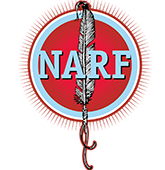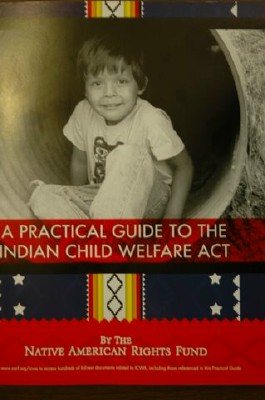
Supporting Native American
Children
And Families
_______________
This website includes information about Tribal child welfare programs, the Indian Child Welfare Act (ICWA), federal and state laws and regulations, and Indian child welfare cases. It also houses ICWA INFO, a blog that provides the latest news for Indian child welfare practitioners. Sign up for email updates below.
About: Brackeen v. Haaland
For decades, ICWA has been recognized by child welfare experts as the gold standard in child welfare practice, and the law has helped tens of thousands of Indian children and families find fairness and healing in state child welfare systems. In the past several years, anti-tribal interests have launched a series of legal challenges against ICWA, with the goal of broadly undermining tribal sovereignty. The most prominent case and challenge to ICWA was Brackeen v. Haaland (formerly Brackeen v. Zinke and Brackeen v. Bernardt). In June 2023, the U.S. Supreme Court handed down its decision in Haaland v. Brackeen, and in a 7-2 opinion resoundingly affirmed the constitutionality of the Indian Child Welfare Act.
During the Brackeen case, there was an outpouring of support for the Indian Child Welfare Act. Find summaries of the pro-ICWA amicus briefs and links to each brief on our Brackeen v. Haaland resource page.
About: The Indian Child Welfare Act
The Indian Child Welfare Act (ICWA) is a federal law enacted in 1978 to protect the well-being and best interests of Indian children and families. It upholds family integrity and stability and keeps Indian children connected to their communities and cultures. It is widely recognized as following best practices and being the gold standard in the field of child welfare.
ICWA also reaffirms the inherent rights of tribal nations to be involved in child welfare matters involving their citizens. It ensure tribes can advocate for the best interest of their tribal members.
Because of ICWA’s strong foundation, many states have enacted similar state legislation to protect Native American families in their community.
To learn more about the details of the law and how it is applied, visit NARF’s A Practical Guide to the Indian Child Welfare Act.
Learn more about how we are defending the law that defends our children in the 2019 NARF Legal Review.
RELATED CONTENT:
ICWA INFO is a resource for child welfare practitioners.
Sign up below to receive email updates.

- Interest of A.D.-B., December 4, 2025 (Supreme Court of North Dakota.)Read the full opinion at the National Indian Law Library.
- American Indian and Alaska Native children twice as likely to live with grandparentsA new analysis of American Community Survey (ACS) data from 2018 to 2022 finds that a sizeable share (23.3%) of American Indian and Alaska Native (AIAN) children under age … Read more
- Northern California Tribe and Humboldt County settle lawsuit over extended foster careAfter a two-year legal battle, the Bear River Band of Rohnerville Rancheria and one of its tribal citizens, former foster youth Madison Fisher, have settled a lawsuit with state … Read more
- In re C.L. et al., November 17, 2025 (Court of Appeal, Second District, California.)Read the full opinion at the National Indian Law Library.
- How the US is still removing Indigenous children from their families at alarming rates – videoFor centuries, the US government tried to erase Indigenous identity, with boarding schools, adoptions and a chilling mission: “Kill the Indian in him, and save the man.” In 1978, … Read more
- In re the termination of parental rights to L.J.L., November 7, 2025 (Court of Appeals of Wisconsin.)Read the full opinion at the National Indian Law Library.
See more of the latest news related to Indian child welfare →

